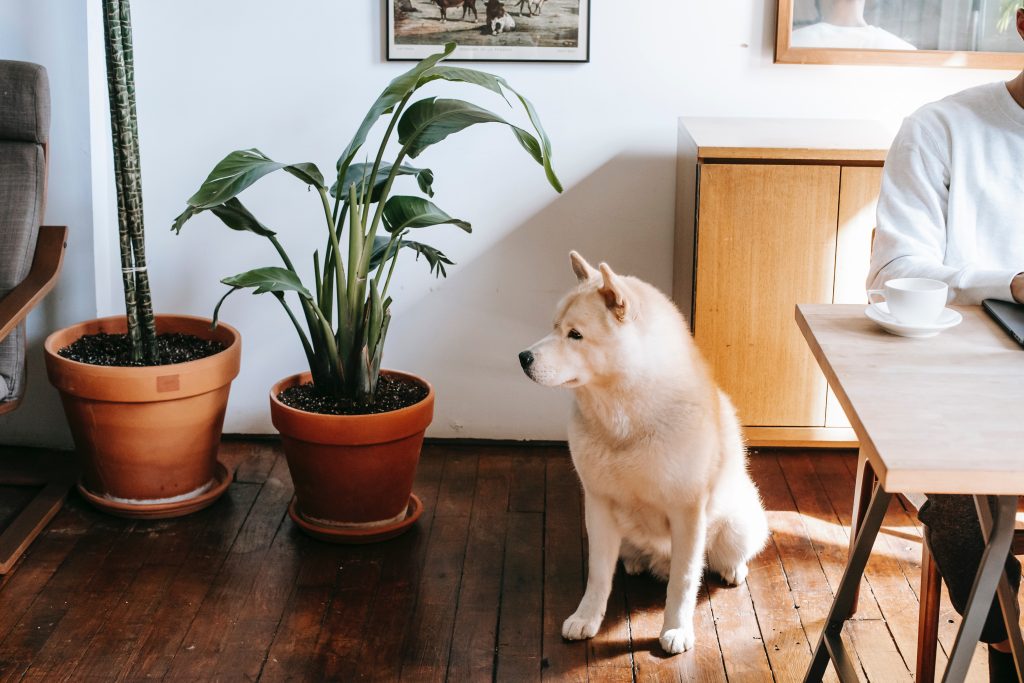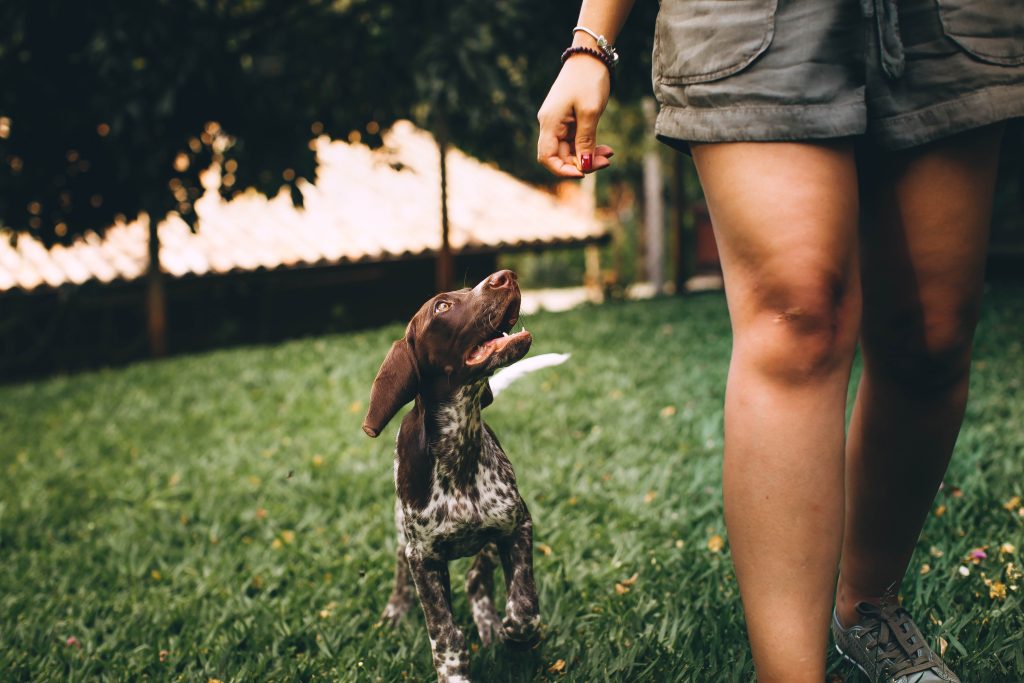Have you ever noticed that no matter where you go within the confines of your home, your faithful canine companion is hot on your heels? Whether it’s the kitchen, the bathroom, or simply moving from one room to another, their unwavering presence is undeniable. While it may be endearing and even flattering, you may find yourself wondering why your dog seems so intent on following you everywhere.
The truth is, the instinctual behavior of dogs following their human companions has been ingrained in their nature for thousands of years. It goes beyond mere curiosity or a desire for constant attention. In this blog post, we will explore the various reasons behind this peculiar behavior, shedding light on the fascinating bond that exists between humans and their four-legged friends.

Reasons Why Your Dog May Follow You Around
Dogs following their owners is a behavior deeply rooted in their evolutionary and social history. Understanding the reasons behind this behavior can shed light on the remarkable bond and attachment dogs form with their human companions. Here are a few key factors that contribute to why dogs follow their owners:
- Pack Instinct: Dogs are descendants of wolves, highly social animals that live in packs with a well-defined social hierarchy. Wolves rely on their pack for survival, protection, and cooperation in hunting. When dogs live with humans, they often perceive their human family as their pack. Following their owners is an instinctual behavior ingrained in their DNA, as they naturally seek to stay close to their pack members for safety, security, and social interaction.
- Social Bond: Dogs are known for their social nature and their ability to form deep emotional attachments. They develop strong bonds with their human owners, whom they see as a source of love, care, and companionship. Following their owners is an expression of their desire to be near and connected to their trusted human companions. Dogs thrive on human interaction and find comfort in their presence, which motivates them to follow their owners from room to room or wherever they go.
- Seeking Security and Protection: Dogs perceive their owners as a source of safety and protection. By following their owners, dogs feel more secure and reassured in unfamiliar or potentially threatening situations. This behavior can be observed when dogs exhibit “velcro dog” tendencies, where they stick close to their owners’ side, especially in new environments or when encountering other animals or strangers. Dogs rely on their owners for guidance and protection, and following them is a way to ensure their own well-being.
- Attachment and Separation Anxiety: Dogs can develop strong attachment bonds with their owners, leading to separation anxiety when they are separated. Following their owners everywhere may stem from a fear of being left alone or a desire to avoid separation anxiety. Dogs who experience separation anxiety may exhibit clingy behavior and become distressed when their owners are out of sight. By staying close and following their owners, dogs feel more secure and less anxious about being separated.
- Learned Behavior and Positive Reinforcement: Dogs are highly observant and responsive to their environment. If following their owners has been reinforced with rewards or positive experiences in the past, dogs are likely to continue the behavior. For example, if a dog learns that following their owner leads to playtime, treats, or attention, they will be more motivated to stick close and repeat the behavior in the future.
It’s important to note that while most dogs naturally exhibit following behavior, individual dogs may vary based on their personality, breed tendencies, and past experiences. Factors such as early socialization, training, and the overall relationship between the dog and owner can also influence the intensity of this behavior.
History Between Humans and Dogs
The history between humans and dogs is a captivating tale that stretches back tens of thousands of years. The origins of this extraordinary partnership can be traced to the process of domestication, where early humans and wolves began to form a unique bond that would forever change the course of both species’ evolution. Evidence suggests that the domestication of dogs occurred during the Paleolithic era, around 15,000 to 30,000 years ago. The exact timeline and location remain subjects of ongoing study, but it is widely believed that the process began when wolves were attracted to human settlements in search of food scraps. These wolves were likely less fearful of humans and gradually grew accustomed to their presence.
Over generations, the wolves that exhibited more docile and less aggressive behaviors were more likely to survive and reproduce, leading to a divergence from their wild ancestors. Through natural selection and human intervention, certain traits that were beneficial to humans were favored and passed down. As the partnership deepened, humans discovered the incredible utility of dogs. Dogs were invaluable in hunting, assisting with tracking and retrieval of game, guarding settlements, and providing protection from predators. They played crucial roles in early human survival, enabling more efficient hunting, defense, and gathering of resources.
Beyond their practical contributions, dogs began to occupy a special place in the hearts of humans. They provided companionship, warmth, and emotional support, creating a bond that went beyond mere utility. This bond is evident in the archaeological record, with ancient artifacts depicting humans and dogs side by side, such as cave paintings and burial sites where dogs were laid to rest alongside their human companions. The relationship between humans and dogs continued to evolve as civilizations flourished. Dogs became integral to agricultural societies, assisting with herding livestock and guarding crops. Different breeds were developed, each with specialized skills and traits suited to specific tasks.

The history between humans and dogs is a testament to the depth of this extraordinary relationship. From their origins as hunting companions to their roles as beloved family members, dogs have left an indelible mark on human civilization. They offer unwavering loyalty, unconditional love, and companionship that enhances our lives in countless ways.
So, the next time you find your furry friend faithfully tailing your every step, embrace the connection that exists between you. Cherish the trust and affection that your dog bestows upon you, for in their unwavering loyalty lies a bond that transcends words and enriches both your lives.
Read more blog posts on our website here.
